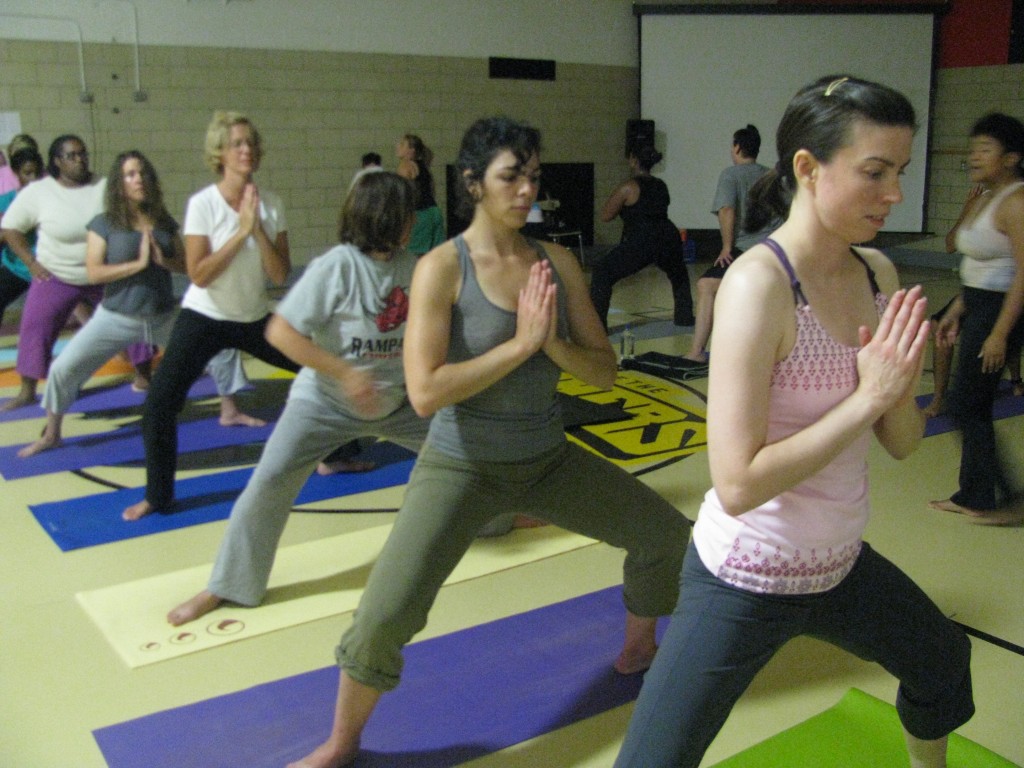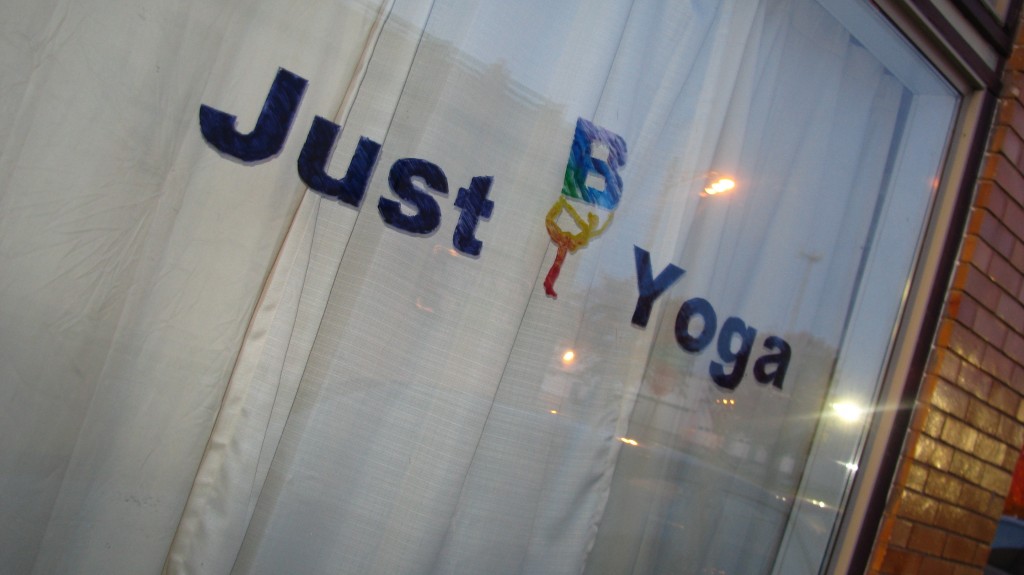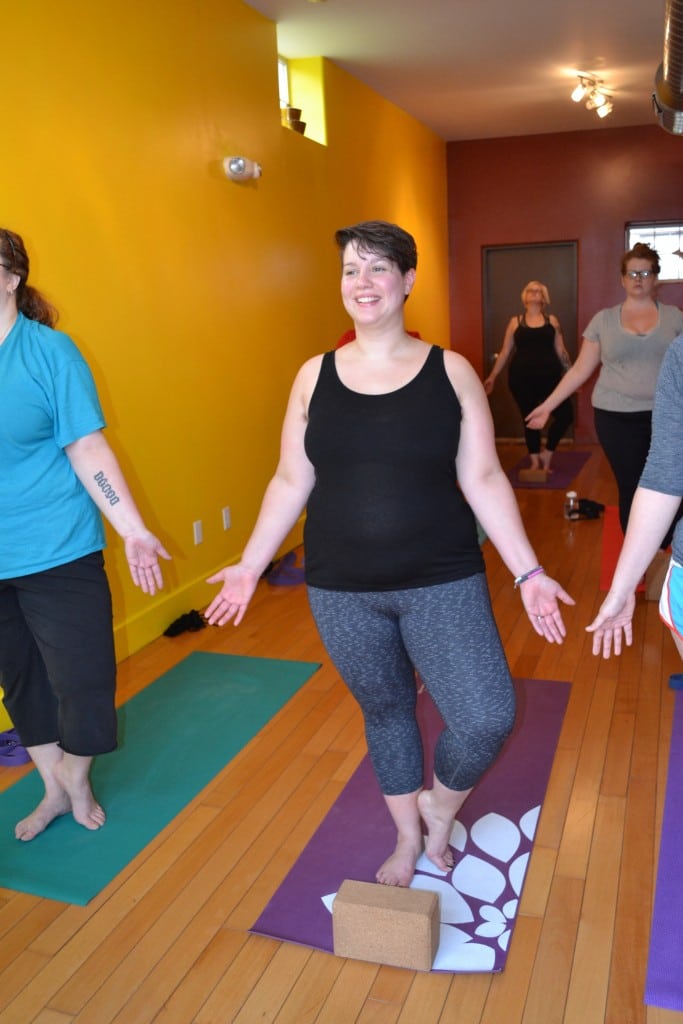Just B Yoga, a donation-based yoga studio, got started on a public bus in 2010.
It was the #14 on the CATA system here in Lansing. Michigan was in the tailwind of the Great Recession.
It was an idea that got into motion as I noticed no one who rode the bus with me went to the yoga studio at my home stop. I would try to convince my riding buddies to join me some time, especially if they were complaining of back pain, stiffness. But they never took me up on it.
We’d get off at the same stop together and go our separate ways.
Then it started to dawn on me as I walked passed the cars in the parking lot – BMWs, Lexuses, Navigators – that the studio didn’t exactly roll out a welcome mat for folks of lesser means.
A monthly bus pass is $30. To drop into a class was $15 at the time.
How can anyone justify half of their monthly transportation budget on a single yoga class?
They can’t.
What if they’re making minimum wage? (federal minimum wage is $7.25/hr)
Yoga is out of reach for those who need it the most.
My eyes opened further.
I started to tally how much each person represented in yoga merchandise:
Yoga mat for $70
Yoga pants $50
Yoga tops $35
Yoga mat bag $30
Yoga mat towel $35
Everyday people are priced out of yoga.
There were no scholarships. Yes, there were free classes once a week but if everything around you says you don’t fit in why try?
On top of all that most of the people I rode the bus with were people of color. I was one of the few people of color going to classes at the yoga studio. At the time I was the only yoga instructor of color in the studio.
It was clear. If I was going to teach yoga I would make sure my classes were affordable and accessible. I would remove money as a barrier.
I would make the language of my classes plain spoken (take out the Sanskrit and anatomy references). Who says trapezius?
So I started to look into finding a space that would let me offer a free class. We got offered space at the Shabazz Academy, a local charter school, in the gymnasium.

What had I gotten myself into?
Leave no yogi behind
I was determined to never turn anyone away and I worked it out. We’d go to the wall. We’d just do floor poses. We’d take poses out.
I started a new philosophy about my teaching: “Don’t teach to the most capable in your room. Teach to the least able. Everyone else can get what they need if they need more. But the default is leave no yogi behind.”
We survived through one spring, summer and then winter got rough. There was no heat in the gymnasium. We couldn’t practice in the cold Michigan winters in a cold gym.
Miracles do happen. A space was offered to me to start my own yoga studio quite affordably. I was working full-time as a newspaper editor in digital news. I paid for the space out of passion.
It started with the weekly free class and a few donation-based classes started to develop. This happened with the help of an army of friends: Connie, Anna, Jade, Chuck, Neil, John, Monica, Anika…on and on.
In 2012 I left my full-time job to pursue cultivating Just B Yoga.
Today we’ve grown to extend “accessibility” into all of our programming. We want all our classes to offer a welcome yoga mat.
Yoga for curvy bodies.
Safe Zone yoga for the LGBTQ community.
Kids yoga.
Family yoga.
Our affordability mission has evolved into a system we call “conscious commerce.”
Conscious. Socially active. Sustainable.
We offer a pay it forward system, Karma Ka$h that lets students support one another and be a part of the solution. There is value in giving the community opportunities to give and not just receive.
All classes are still available on a donation basis. And we offer a work exchange.
Today we serve an average 300 people a week with our yoga, tai chi and meditation classes. We also have a growing workplace yoga program. We’ve been invited for speaking engagements and presentations.
I am committed to continuing to find a way to sustain our model and remain committed to social action and social entrepreneurship. How can we create a sustainable yoga culture?
I believe that yoga is a service and a community hub for connection. I know it can help the individual body but also our collective body as neighborhoods, cities, schools.
If any of this is exciting to you – doing yoga or finding ways to create community in conscious ways, we want to hear from you. Drop us a line at info@justbyoga.com.
Get on the bus with us and let’s explore where we can go together!


